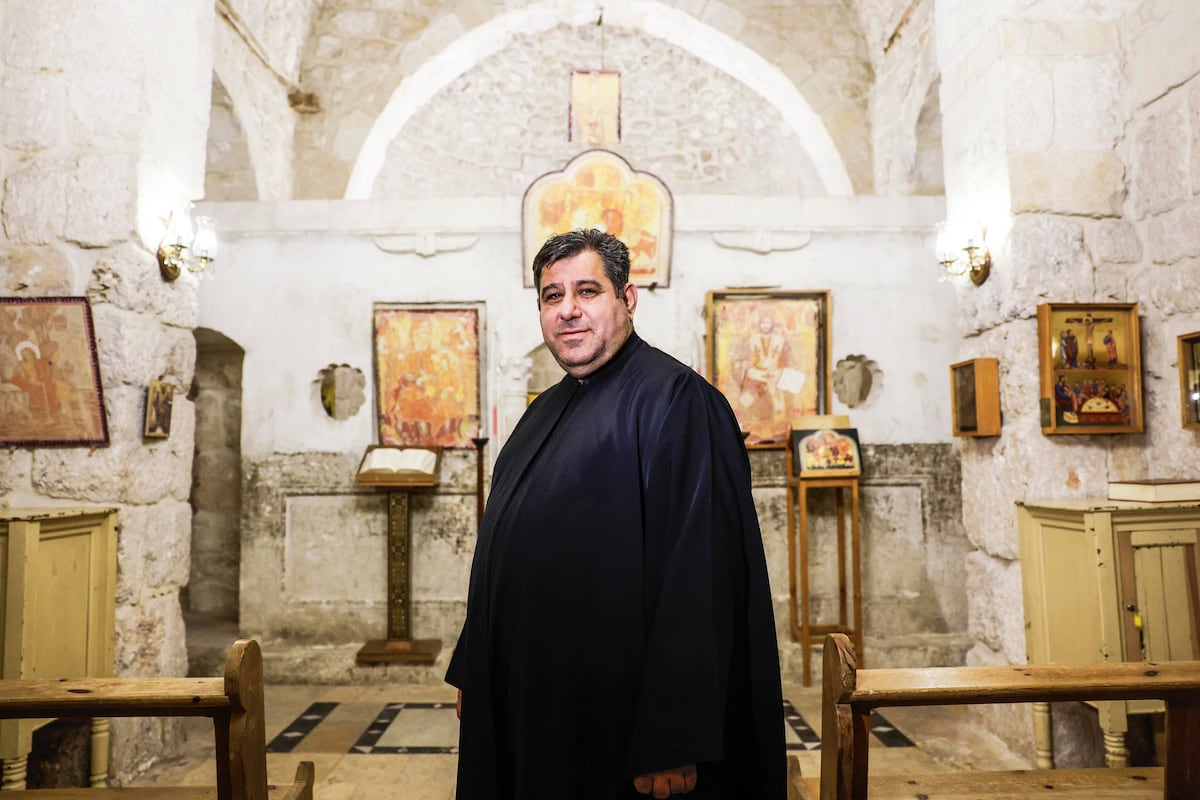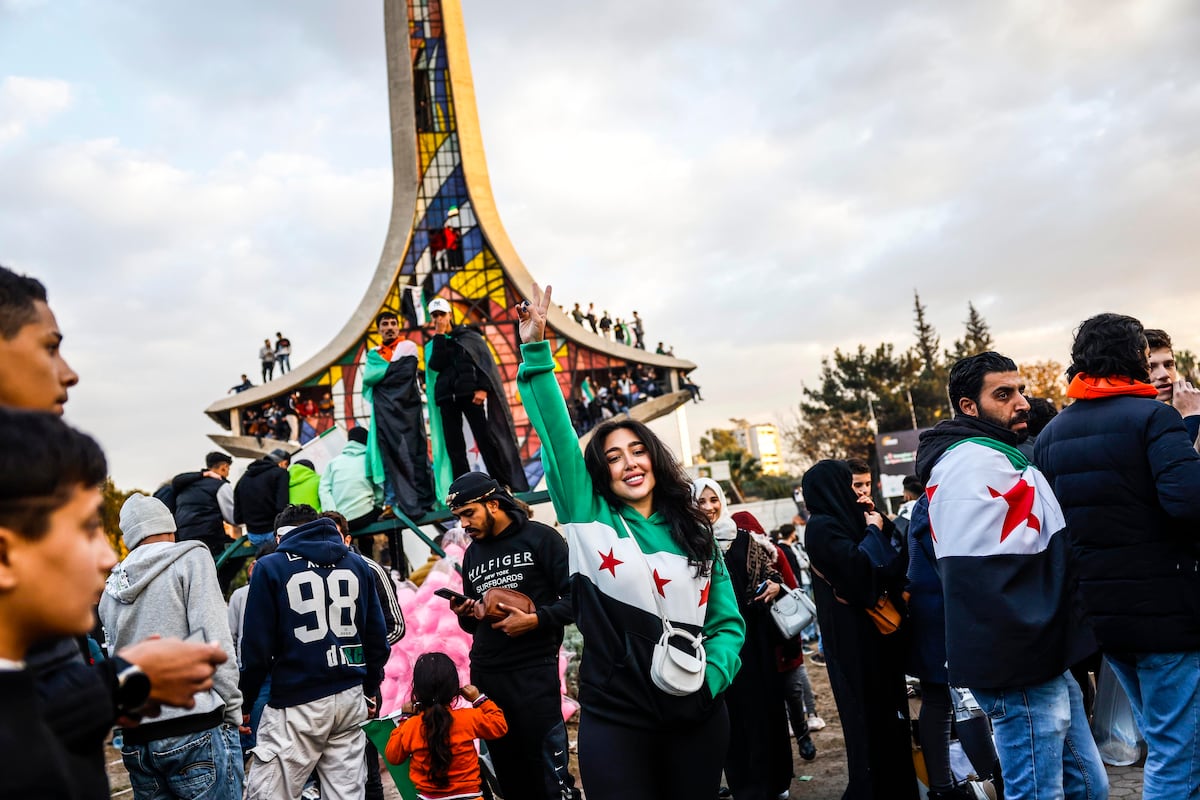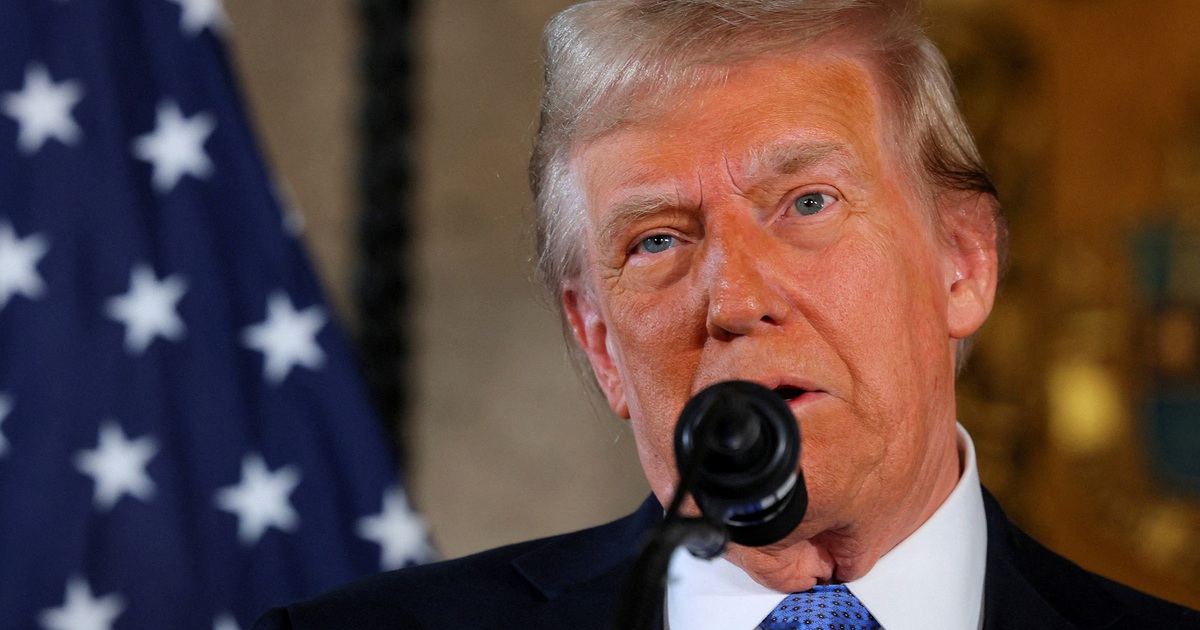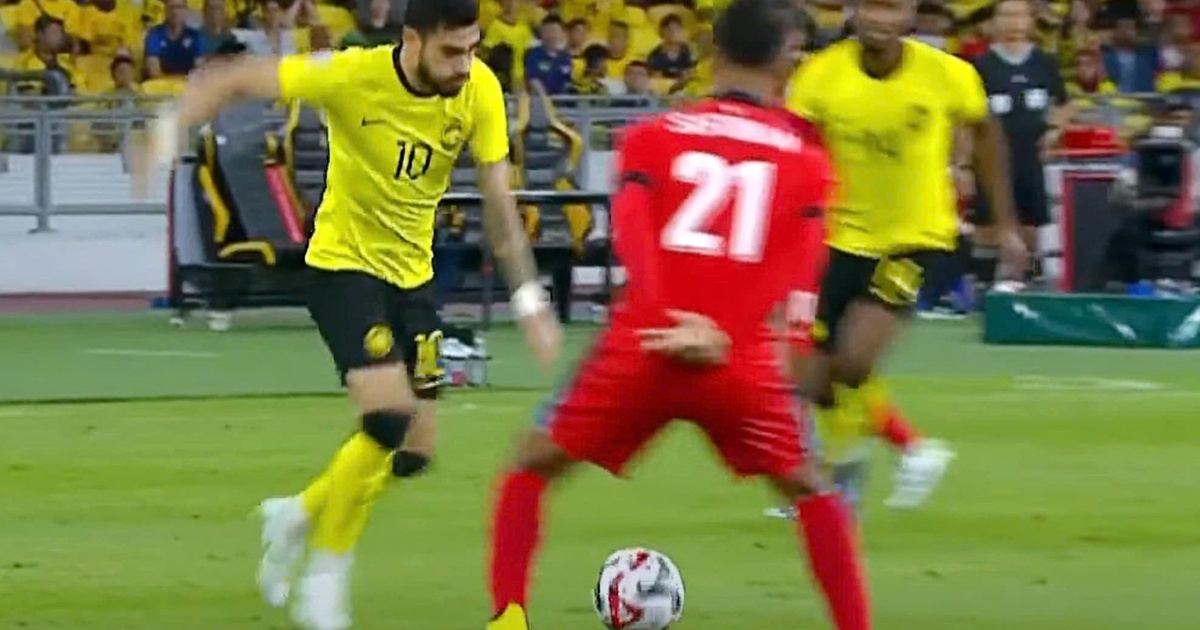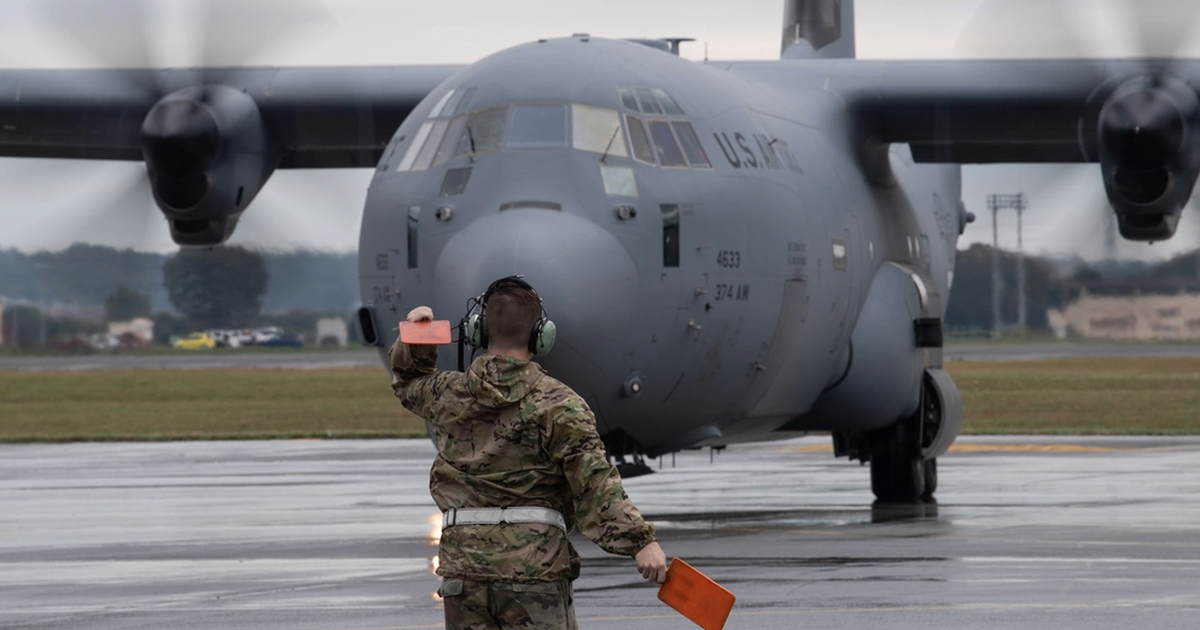Monsignor Denys Antoine Shahda was watching the 2014 World Cup final in Brazil when a shell projectile passed through the archbishop’s residence in Aleppo. Lying on the ground, he began to scream, but no one listened. The Aziziye neighborhood was plunged into darkness by the fighting between various rebel militias and the Bashar al-Assad regime, the streets blocked by concrete blocks to slow down the attacks. “No ambulance came. “We were very scared,” he remembers.
Shortly before, another projectile had pierced one of the thick walls of the adjacent cathedral of Our Lady of the Assumption. Restored, it once again hosts services. Although it is Sunday – a working day in Syria – half of the temple pews are full and in his sermon Archbishop Shahda addresses the problems of the Christian community, which are those of all the inhabitants of Aleppo: the lack of running water, electricity, services. “We have seen very important changes in recent weeks, things that make us optimistic. We hope that, like the birth of Jesus that is now approaching, it will bring us hope and good deeds,” he preaches to the parishioners.
The entry of the radical Islamist group Hayat Tahrir al Sham (HTS) into Aleppo at the end of November scared many Christians. Before the war, this group represented around 10% of the population, but it is estimated that the percentage has fallen to less than half. “Some of them have left,” explains Lilian Kirdi after mass: “The people who are still here will surely stay, because they have treated us well and have not done anything bad to us.” Another attendee at the religious service, Georges, assures that his opinion of the Islamist rebels “has changed 180 degrees” since they took power: “They have made good changes. I am hopeful for the future. What we hope is that equality will come among all Syrians and no one will be marginalized because of their religion.”
An incident, which has recently circulated on social networks, reflects both the fears that Christians harbor and the efforts of the new authorities to appease them. One photo captured a car driving in Damascus with a motto on the moon: “Your time has come, devotees of the cross.” The photo spread like wildfire on WhatsApp among Christians in the area. A video shows what happened next: the Islamist rebels turned authorities forced the vehicle’s occupants to delete the phrase.
Apparently more confident with the new provisional government in the north, where they have closely observed the management of HTS in the rebel stronghold of Idlib, things are not seen in the same way in the Christian communities in the central area of the territory. In Maalula, one of the oldest sanctuaries in the Arab country, where the Aramaic spoken by Jesus Christ remains a living language, they still remember the attacks launched in 2013 by the Al Nusra Front, an affiliate of Al Qaeda and a predecessor of the current dominant Islamist force. in Syria. Its strategic position, on the heights overlooking the central highway that links the large cities, turned it into a combat front with government troops.
The Al Nusra Front came to control it, occupied the monastery and churches, killed a dozen people and took a group of Orthodox nuns hostage, whose release they negotiated. For half a year a battle was fought almost house to house. The government troops ended up regaining control with cannon fire, with the help of their allies, and the Christians – who, in general, supported Assad’s side during the almost 14 years of war, largely out of fear of the most vulnerable sectors – fundamentalists on the other side― do not forget those days. They remembered them two weeks ago, in the hours before the fall of the regime, when the rebels from Idlib entered the town. One of the residents claims, without wanting to give his name, that they killed three locals. One of them after refusing to forcibly convert to Islam.
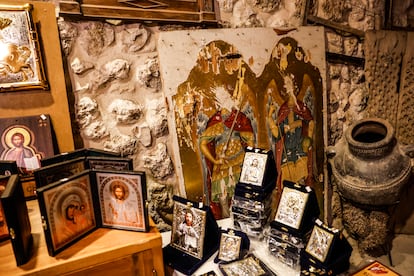
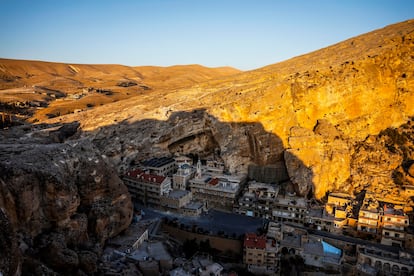
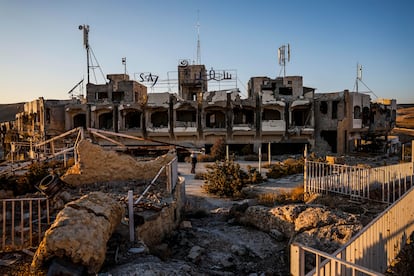
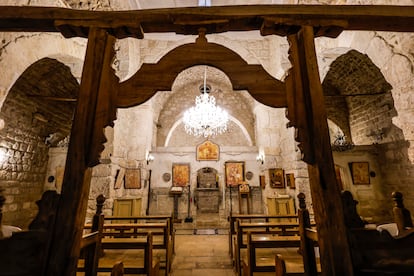
“Of course we are afraid,” acknowledges the Melkite Greek Catholic priest Fadi Barki in the ancient site of Saint Sergius and Saint Bacchus (whose church dates back to the 3rd century), better known as Mar Sarkis. “The same people who attacked us 11 years ago are the ones who rule now in Syria,” points out the priest, who has just returned to the monastery after participating in a meeting of Christian communities in the capital. “We have asked the UN envoy for Syria to clearly guarantee our presence in the institutions,” he clarifies.
Perched on the slopes of the mountains on the border with Lebanon, about 50 kilometers north of Damascus, Maalula is the town with the highest percentage of Christians (90%) in the country, although of its 4,000 inhabitants counted in 2011, only now in the middle of winter, about 1,500. Another large monastery, that of the Orthodox nuns of Saint Thecla, erected in the 4th century, was attacked and the remaining six churches were also damaged.
“Since the fall of the regime, no one watches the streets of Maalula, although there are armed criminal gangs in the mountains,” warns Barki. At the entrance you can see one of the checkpoints established by the army after the 2013 attacks. Today it is unguarded. “This abandonment and the absence of the new authorities, who have visited all the towns in the area except this one, worries us Christians,” concludes the Catholic priest while pointing out a fresco of the archangels Michael and Gabriel that suffered serious damage in the jihadist attack of 2013.
The nine archbishops of Aleppo
Aleppo has six Catholic archbishops (one for each rite: Syriac-Catholic, Melkite, Armenian-Catholic, Chaldean, Maronite and Latin). And three Orthodox (Syrian Orthodox, Armenian and Greek Orthodox). As well as two evangelical churches. But the city’s Christian community has been severely decimated by the war: of the more than 200,000 who lived in Syria’s economic capital, barely 25,000 now remain.
Georges Sabe, superior of the Marist brothers who has lived through the entire war in the city (he directs solidarity projects for Christian and Muslim families), explains that not only the violence of the war has led many Christians, especially young people, to leave. of the country, but also the sanctions – which have destroyed the economy -, the lack of job opportunities and the harsh military service imposed by the regime: “They were sent for a year and they could spend nine in the army, losing all their youth.”
“In times of [el derrocado] Assad and his dad [Hafez] there was religious freedom,” concedes Shahda, who served more than two decades in Venezuela. “What there was not,” he highlights, “was freedom to express our thoughts.” Now he is optimistic: “People are starting to talk. Before I couldn’t because there was fear that someone would listen to the Government.”
In recent weeks, HTS members have met with representatives of all faiths. “They have given us peace of mind and that we will be able to continue carrying out our religious practices as before, that our women will not have to wear veils and they have even promised to return us to Catholic schools.” [nacionalizados en 1967]”, he assures.
Regarding alcohol, a taboo subject for Islamist groups, he affirms that he has spoken with the Armenian community – which runs several restaurants in the center of Aleppo – and has received guarantees that they will be able to continue selling alcoholic beverages as long as they are not visible from the outside. . On Monday, in one of these restaurants, several tables were dominated by bottles of whiskey and arak (aniseed liquor). Several nightclubs remain closed, however, since the Islamists entered the city.
Druze and other religious minorities
The Greek Orthodox priest Georges Tesjosh is in charge of the Church of the Annunciation of Deraa, one of the three temples (along with the Catholic and the Anglican) that are still open in the southern capital, the cradle of the revolution against the regime in March 2011. “We are part of this country, we have historically lived in that city and we will continue here,” he highlights, invested with religious rigor in the parish office, among icons and photos of patriarchs orthodox Now, only about two hundred Christians remain in Deraa, half as many as at the beginning of the Syrian conflict, says the priest assigned to the Patriarchate of Antioch, in southeastern Turkey.
Like other even smaller religious minorities, such as the Druze, the Syrian Orthodox and Catholics have had to adapt over the centuries to continuous shifts in power to survive. “We are coordinating with the new authorities and we have received guarantees that our worship will be respected,” Father Tesjosh concludes, without wanting to answer a question about threats made against his parishioners. Over the past 13 years, Deraa has passed time and again from the hands of the regime to those of the insurgency, amid revolts, repression, massacres and devastating urban battles.
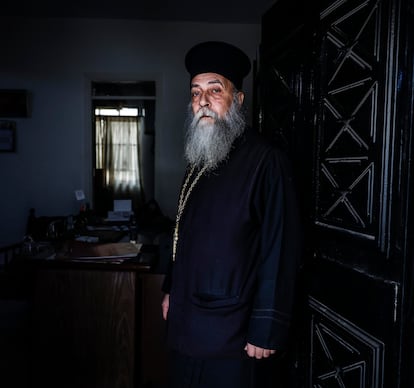
They are not the only things that concern the Christian community. The new rulers are preparing legislative changes, and there is talk of an Islamic system in which religious minorities have a place. “We have had a very open dialogue with them,” says the Marist Sabe in Aleppo: “What we do not want, as a Christian community, is to be a minority. We do not want a system like the Ottoman one, in which there is power of a single color [religioso] and we are allowed to exist or treated well to have a good image in the West, but we are second-class citizens,” he warns.
The deadline given until March by the new interim Executive, dominated by leaders linked to HTS and its Salvation Governmentis crucial for Christians, says the religious: “We have an important mission in these months. Demonstrate our willingness to stay in the country, participate, say what we think and show that we want to be citizens of the same level as others. “Syria is the cradle of Christianity and we are as much from here as the rest.” In the words of Archbishop Shahda: “We were promised many good things, now we hope they will become reality.”

